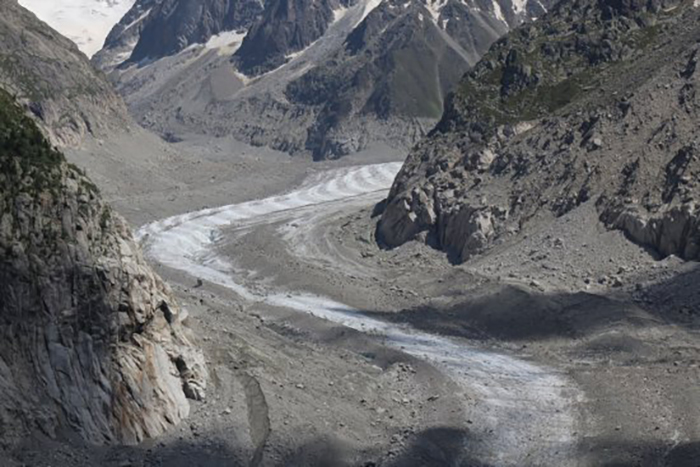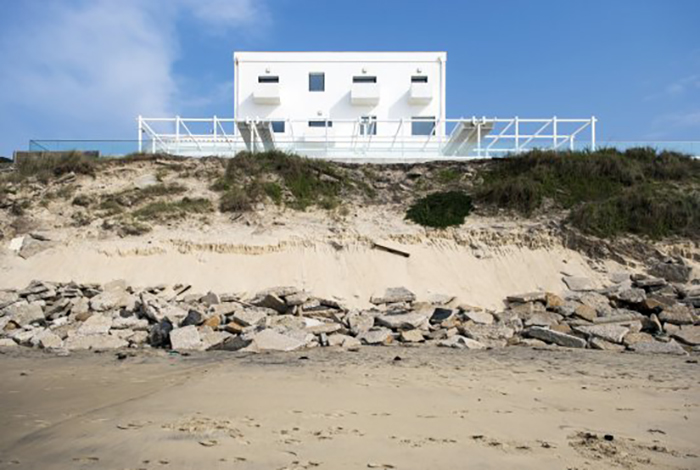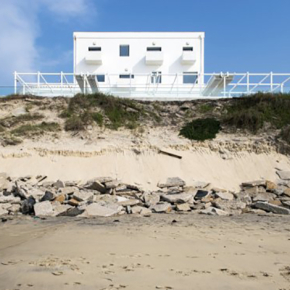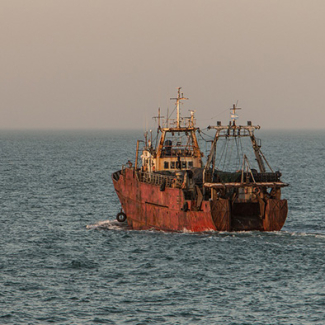
France 2030: Launch of an Ambitious Research Programme to Transform Climate Modelling in the Service of Climate Action
|
Climate change poses immense challenges for human societies and their relation to nature and the environment. The coming decades will be decisive for the future. It is in this context that a new Priority Exploratory Research Programme and Equipment (PEPR)—entitled TRACCS and led by the CNRS and Météo-France—was launched on 29 March in connection with the France 2030 Programme. With a budget of 51 million euros over 8 years provided by France 2030, it aims to transform climate modelling in order to address these challenges and respond to societal expectations. It therefore involves improving knowledge and tools relating to climate impacts and risks.
The development, resilience, and permanence of our societies are being jeopardized by climate change. Measures to reduce greenhouse gases and to adapt to the associated risks are urgently needed. In its latest report, the Intergovernmental Panel on Climate Change (IPCC) emphasized the advantages of developing tools to assist in decision making with regard to climate action on the territorial level.
This is one of the goals of the TRACCS Programme led by the CNRS and Météo-France, with 51 million euros of funding over 8 years provided by the France 2030 Programme. It seeks to accelerate the development of climate models designed by France, and to maintain their relevance and performance. The programme will also respond to growing societal calls for concrete solutions through the implementation of “climate services”1 prototypes co-constructed with stakeholders (industrial sectors, territories). The objective is to help develop climate services that are adapted to needs and based on the firmest scientific knowledge, in order to anticipate the impact of climate change and effectively adapt to its current and future local manifestations, such as rising waters, drought, and a rise in extreme events. This involves an interdisciplinary effort that will better characterize impacts and available drivers of action for limiting societal, environmental, and economic vulnerability.
These climate services are built on existing climate models that need to be improved and made permanent. This requires greater human and technical resources for scientific communities. A major goal of the TRACCS Programme is to prepare existing climate models for new high-performance computing architectures, which reduce the energy consumption of climate simulations and make more efficient use of computing resources, thereby allowing for more models to be created with the same amount of energy. TRACCS will also study the potential benefits of artificial intelligence in implementing climate simulations. The central issue will be to better characterize confidence intervals for the climate information provided by climate models.
The TRACCS PEPR will ultimately seek to develop a reproducible approach for the deployment of climate services, one that will last beyond the 8 years of the programme. These tools will allow stakeholders to act in a more stable context with regard to adapting to climate change. On the international level, the original approach of TRACCS—based on an array of modelling tools of varying complexity—will supplement other modelling methods on both a planetary and very fine scale.
To complete these actions, the co-directors of TRACCS, the CNRS and Météo-France, will collaborate with seven academic partners: the CEA, Sorbonne Université, l’UVSQ-Université Paris-Saclay, l’Université Grenoble-Alpes, Cerfacs, the IRD, and l’Université Paris-Saclay.
The government has earmarked 3 billion euros for research through ambitious research programmes (PEPRs) led by institutions, with a view to consolidating French leadership in key domains connected—or likely to be connected—to a technological, economical, societal, or environmental transformation that is considered a priority on the national or European level. Exploratory PEPRs target emerging scientific and technological sectors, with 17 having been launched to date.
Resources: copyright-free photos on the subject are available (upon request to presse@cnrs.fr).
https://images.cnrs.fr/wishlist/1449

© Bruno JOURDAIN / IGE / CNRS Photothèque

© Cyril FRESILLON/EPOC/CNRS Photothèque


